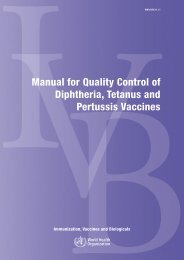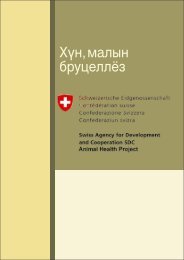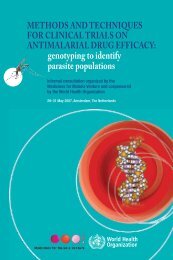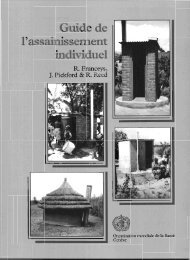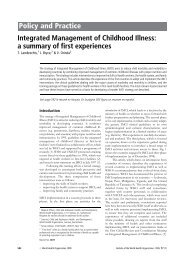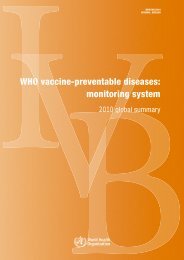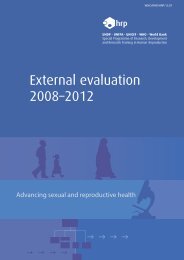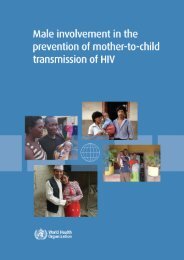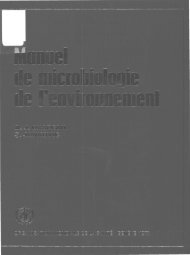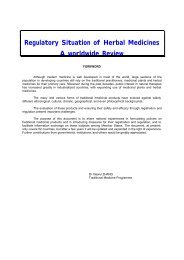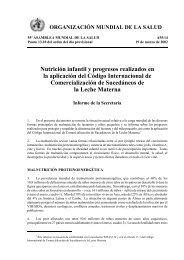IPDE - Extranet Systems - World Health Organization
IPDE - Extranet Systems - World Health Organization
IPDE - Extranet Systems - World Health Organization
Create successful ePaper yourself
Turn your PDF publications into a flip-book with our unique Google optimized e-Paper software.
86 A. W. Loranger<br />
diagnosis, as usually practiced. was 'as good as gold,' there would be no<br />
need to improve it with semistructured interviews.<br />
A common practice is to invoke construct validity by demonstrating<br />
that a diagnosis agrees with that based on other interviews or inventories.<br />
However, this has restricted meaning, because the instruments usually<br />
sample identical content and often employ similar methods. The use of<br />
the so-called LEAD standard (Longitudinal, Expert, and All Data)16 is<br />
also not without its problems. It is unlikely that many uue 'experts* have<br />
the time or inclination to want to conduct a thorough examination and<br />
prolonged study of a large enough sample of patients to provide adequate<br />
representation of the various PDs and the differential diagnostic<br />
problems commonly encountered in ordinary clinical practice. The<br />
experts would also have to adhere to the same definition of a PD and<br />
diagnostic criteria, or there would he obvious artifactually based discrepancies.<br />
Inevitably the experts would also have to demonstrate how much<br />
they agree with one another.<br />
The ultimate validation of the <strong>IPDE</strong> may prove to be a pragmatic one.<br />
Does the interview provide more replicahle and useful answers to questions<br />
about etiology, course, and treatment than the assessments obtained<br />
from clinicians without benefit of the <strong>IPDE</strong>? The expectation is that it<br />
has the potential for doing so, because it is more likely to insure comprehensive,<br />
standardized coverage of the information required for a diagnosis.<br />
In theory the results of the examination should also be more<br />
generalizable and exportable than the clinical consensus of a panel of<br />
experts at one particular facility.<br />
There are obvious cultural variations in what is considered maladap<br />
tive behaviour. Understandably one might question whether the PD<br />
criteria of DSM-111-R, which were developed for use in the US, are relevant<br />
or meaningful (valid) in other cultures. One might also wonder<br />
whether the ICD-10 criteria, which were designed for worldwide use,<br />
might be unduly influenced by Westem psychiatric tradition. In the study<br />
no attempt was made to change the criteria themselves, in order to<br />
accommodate a particular culture. However, the clinicians were<br />
instructed to judge the meaning of the behaviour in the context of their<br />
culture. This did not prove to be a common occurrence. Examples<br />
include the DSM-111-R criteria pertaining to monogamous relationships<br />
(antisocial) and harsh treatment of spouses and children (sadistic).<br />
Surprisingly, the investigators at the various centresexpressed few reservations<br />
about the applicability of either DSM-111-R or ICD-10 in their<br />
own nations.




